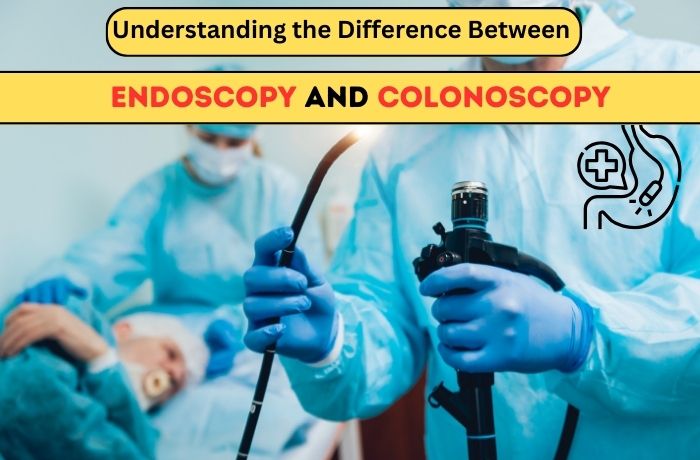
- April 10, 2024
Understanding the Difference between Endoscopy and Colonoscopy
Are you scheduled for an endoscopy or colonoscopy soon, or are you simply curious about these procedures? Understanding the differences and similarities between these two common diagnostic tools is essential for demystifying what can seem like difficult procedures.
The human body is a complex system, and understanding its intricacies often requires a closer look. This is where medical procedures like endoscopy and colonoscopy come into play. These procedures, performed by specialists such as an Endoscopy Doctor or a Colonoscopy Specialist, allow doctors to examine our internal organs in detail. But what exactly are these procedures, and how do they differ? Let’s delve into the details.
Why is this topic important?
Understanding the difference between endoscopy and colonoscopy is important for several reasons. First, it helps patients be well-informed about the procedures they may be undergoing, thereby reducing concern and fear. Second, it allows individuals to make informed decisions about their health and treatment options. Finally, it promotes awareness of preventive healthcare, as both procedures play an important role in the early detection of various diseases.
What is an Endoscopy?
An endoscopy is a procedure that allows doctors to see and operate on your body’s internal organs and vessels without making large incisions. A flexible tube with a light and camera attached to it (an endoscope) is used to look inside the digestive tract. Upper endoscopy, also called gastroscopy, involves inserting the endoscope through the mouth to examine the esophagus, stomach, and small intestine
What is a Colonoscopy?
A colonoscopy, on the other hand, is a special type of endoscopy that focuses on examining the colon (large intestine). A colonoscope, which is a longer version of an endoscope, is inserted into the rectum to examine the entire colon. This procedure is important for identifying early signs of colorectal cancer and other abnormalities.
Key Differences in Procedure and Preparation
While both procedures use endoscopic technology, their preparation requirements differ significantly. For endoscopy, patients must fast for 6–8 hours to ensure a clear view of the upper digestive tract. In contrast, colonoscopy preparation is more intensive, requiring patients to follow a clear liquid diet for at least 24 hours and to take laxatives to completely cleanse the bowel
The difference lies in the area of the body that they examine. An endoscopy is generally used to inspect the upper part of the gastrointestinal tract, while a colonoscopy is used to view the colon and rectum.
The Importance of Selecting the Right Specialist
Choosing a skilled and experienced doctor is important for both endoscopy and colonoscopy. A specialist in these procedures can provide accurate diagnoses and ensure safety throughout the procedure.
Early detection and diagnosis are essential in the treatment of digestive problems. Endoscopy allows doctors to detect ulcers, inflammation, or blockages in the upper digestive tract. Colonoscopy plays an important role in the prevention of colorectal cancer. By removing polyps that can develop into cancer over time, a colonoscopy can significantly reduce your risk.
Introducing Dr. Suresh Jain
For those looking for an experienced and trusted endoscopy and Colonoscopy Specialist in Pune, Dr. Suresh Jain at Digestive Endoscopy Clinic is a highly recommended option. Dr. Jain offers extensive endoscopic and colonoscopic procedures, ensuring that you receive the best possible care.
Whether you need a routine screening or are experiencing gastrointestinal symptoms, Dr. Suresh Jain and his team at the Digestive Endoscopy Clinic are equipped to provide comprehensive care tailored to your health needs.
Understanding endoscopy and colonoscopy can help you make informed decisions about your digestive health. Don’t delay in discussing any concerns you may have with your doctor. Remember, early detection is the key to a healthy future!
